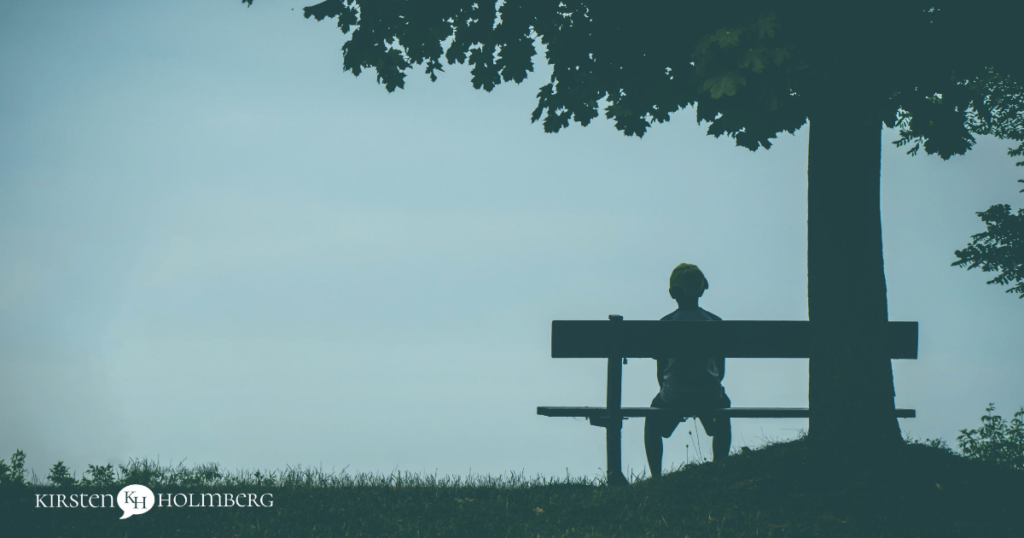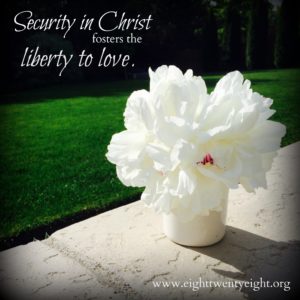Friendship
Overcoming our Divisions

These are difficult days on our planet and in our country. We’re divided over so very much. Frankly, the fractures in our community are making my heart ache. I mean it: this stuff genuinely keeps me awake at night.
Author (and fellow Our Daily Bread writer) Elisa Morgan generously offered me the opportunity to write to her readers about that ache and how I’m learning to lean in to differences between me and those I love. I trust those words will help you, my readers, too.
A Life of Addition
I wasn’t sure what her perspective was. Should I emphasize we were required to wear masks? Would that make her feel safe? Or was it more likely to cause her to decline the invitation if she didn’t agree? It was the first time we’d tried to spend time together in person since March when COVID sent us home.
I guessed incorrectly, tried to “sell” our gathering with the wrong assumption. The tension between our vantage points pulled heavily on my heart; the excitement at being together for a fun outing suddenly blunted by the realization that we held different opinions…
Read the rest of the post over on Elisa’s blog.
(And if you missed Elisa’s guest post here on my blog, be sure to check that out here.)
When We Share Our Broken

Be encouraged by these words from one of my fellow Our Daily Bread writers, Elisa Morgan, and her podcast co-host, Eryn Eddy. What I love most about their words here is how they looked past their “obvious” differences and shared their stories with candor to find common ground—something we all need to be doing more of today. And in the process they unearthed the profound treasure that God loves us in spite of our messy brokenness. Learn more about Elisa and Eryn and about the God Hears Her podcast at the foot of the article.
Guest post by Elisa Morgan and Eryn Eddy
Our first meeting was something like a friendship blind date. It happened on a summer day in Grand Rapids, Michigan—home to neither of us. We’d each been tapped by Our Daily Bread Ministries to pilot a podcast for women as co-hosts. After flying in late at night from our home states of Colorado and Georgia, we introduced ourselves early one morning over coffee at the hotel’s breakfast bar.
From first sight, we knew we were different. One old, the other young. One blond the other one brunette turned gray. One artsy and tatted and cool, the other edgy but pretty status-quo.
Would this work? Could we become a team together—cracking open and connecting our hearts so that women listening—who we hadn’t met either—would receive what we all desperately long for? To be seen. To be heard. To be loved just as we are?
Read MoreHow to build friendships when you can’t see each other—or just don’t see eye to eye

Friendship during COVID has presented an incredible challenge. Recently updated research from Cigna showed that a staggering 61% of people feel lonely. And that loneliness is as detrimental to our health as smoking and other well-known health problems.
And those findings were BEFORE coronavirus. I can’t imagine those statistics have improved in recent months.
We need each other. That’s been true since the earliest days of humanity when God said it wasn’t good for Adam to be alone. The Bible speaks a great deal to our being designed for community (and offers much wisdom on how to do it well). I’ve often written and spoken on friendship because of how much I value it.
COVID is testing friendships in unprecedented ways (though it’s certainly not the only challenge to relationships; political divides and geographic distance are too.). I saw a post on social media in which a person lamented the collapse of 40-year-long friendships because of the differing perspectives on COVID. This makes me ache. While we can avoid topics of conversation we know create conflict (I have friends who’ve agreed to not talk about politics because they both get a big too angsty), coronavirus cannot be avoided as a conversational topic because our (potential) differences affect whether and how we interact at all.
So, how are we to build friendships right now? How do we make new friends if we’ve recently relocated? I’ve got a few guiding principles to share and then a handful of tips to offer.
Read MoreHow to encourage one another
 I’ve watched a lot of cross-country races in my day. All three of my kids participate in the sport, so I’ve become a big fan. One of my favorite races is the Steven Thompson Memorial Centipede. It’s unlike any other high school meet my kids’ teams attend because the athletes run as a single unit for the first two-thirds of the race. No joke: all seven members of the team hold a rope while they run.
I’ve watched a lot of cross-country races in my day. All three of my kids participate in the sport, so I’ve become a big fan. One of my favorite races is the Steven Thompson Memorial Centipede. It’s unlike any other high school meet my kids’ teams attend because the athletes run as a single unit for the first two-thirds of the race. No joke: all seven members of the team hold a rope while they run.
For the final mile, they drop the rope and finish the race as individuals. But each athlete’s finishing time is driven, in large part, by the strength of their team whose collective pace positions them for the final mile. The fastest athletes finish slower than they do when they run alone and, often, the slower runners finish faster. Read More
Bridging the distance in friendship
 The prospect of moving 800 miles away filled me with grief.
The prospect of moving 800 miles away filled me with grief.
As an introverted person, anticipating the loss of the friendships I’d built over many years was deeply painful. I feared losing the proximity that wove my life into the fabric of others’. I feared distance would unavoidably change, or even end, those relationships. I was, in many ways, ready for a new adventure, but the thought of starting over relationally was a heavy weight in my heart.
My friend’s words were a surprising gift. And the remedy to my ache…
Read the rest of this post on the (in)courage blog today. You’ll find a wealth of encouragement and may even wish to subscribe to have it delivered straight to your inbox daily.
For more of my writing on friendship, click here.
Better Together: Two things to do for the sake of friendship
 Too many of us feel isolated and lonely.
Too many of us feel isolated and lonely.
Sure, friendships take time… time we don’t always feel we have to spare. And yet, I don’t think we can afford to not spend the time on relationships. God designed us for it!
The theme at LIFT (an event I spoke at last week; if you’re local to Boise, I hope you attended!), was community and connection. Our aim is for women to live inspired, fearless, and thriving lives. And we believe that’s best done in community.
I vividly remember my first week of kindergarten. The playground was already swarming with children when I arrived on the school bus. Read More
Authenticity: Rising tide lifts all boats
 I wasn’t sure I wanted to “share.”
I wasn’t sure I wanted to “share.”
I knew the tears would well up in my eyes. (Insert cursory feminine joke about mascara here.) And I haven’t known these women for very long, so tipping my emotional cards felt (extra) risky. We were discussing hypocrisy in the Christian life and how our social masks put an intimacy barrier between us and others. My story was relevant to the topic and even illustrated the point, all while pressing on tender parts of my heart.
I did open myself up and was met with compassionate responses. We talked more about how putting ourselves “out there” often invites community, builds friendship, Read More
What friendship looks like when you’re secure in Christ
 He had everything to lose. Everything.
He had everything to lose. Everything.
As Saul’s son, Jonathan was the presumed heir to the throne in Israel’s newly-founded monarchy. The title. The throne. The crown. The power and prestige. The responsibility. The joy. All would be his.
But that’s not quite the way things worked out.
Saul’s heart turned from the Lord, so the prophet Samuel was sent to anoint the next king (1 Samuel 15). And he didn’t go looking in Saul’s household. Instead, a shepherd named David had the office conferred upon him. But years passed between David’s anointing and Saul’s death. Saul’s jealousy of David flared hot. Read More
Put ’em up
It’s a phrase we commonly associate with being robbed.
This posture–hands raised–was the position held by Moses throughout the battle between Israel and the Amalekites. My pastor taught out of Exodus 17 on Sunday and his words have stirred in me a most needful lesson.
After calling Joshua to lead the troops into battle, Moses climbed the hill and raised his staff in his hands overhead. As long as Moses held this position, Israel gained ground. When he grew tired and his hands fell, the Amalekites had the advantage on the battlefield. His actions are a poignant example of prayer, both literally and figuratively. With his hands raised heavenward, his prayer became the conduit for God’s power. Read More
Sweet in the Bitter
The first few weeks of 2015 have been–to put it mildly–a bit bumpy. I don’t have permission from the people involved to share the whole story with you, but what I can say is this:
I found the sweet part of what’s been such a bitter taste in my mouth.
 I’ve cried. I’ve prayed. Both in equal measure. I’ve felt like a novice swimmer trying to escape a torrent of ocean waves, pummeled as I try to reach the safety of shore. Because of the delicate nature of what we’ve been facing, the need for privacy has forced us to maintain a “nothing’s wrong” posture in the rest of our lives. Which is exhausting in it’s own special way.
I’ve cried. I’ve prayed. Both in equal measure. I’ve felt like a novice swimmer trying to escape a torrent of ocean waves, pummeled as I try to reach the safety of shore. Because of the delicate nature of what we’ve been facing, the need for privacy has forced us to maintain a “nothing’s wrong” posture in the rest of our lives. Which is exhausting in it’s own special way.
Yet the desperate quality of my prayers (and tears) has acquainted me with the suffering of others in a way that my regular, less-than-perfect-but-better-than-I-deserve kind of life doesn’t. I have found myself praying for those in my circles who are also suffering more frequently, and with much more heart, than I customarily do. I am attuned to their needs in a way I normally am not simply because I can’t bring myself to leave the foot of the Cross. Read More
